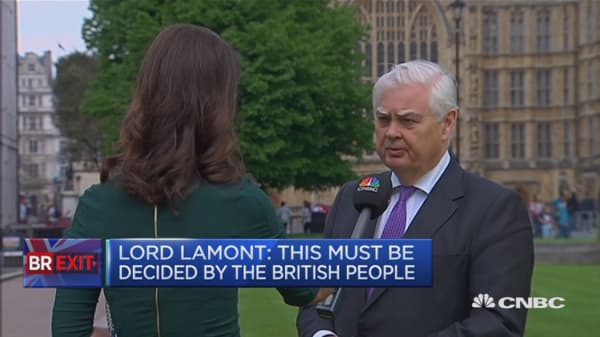Britain's European Union referendum is partly about economics, but it also involves big issues of security, accountability and democracy. It's part of a long-running unresolved constitutional debate about the government and identity of the U.K.. Many deeply flawed arguments are put forward for Britain to stay in. On 23 June, I shall be voting for 'Brexit'.
The U.K.'s security depends above all on factors beyond EU influence. Nato, a military alliance between sovereign countries, was created to meet the challenge of a Europe at war. It's a myth that the EU, rather than Nato, has brought peace to our continent since 1945. Moreover, most of the hundreds of thousands of British citizens who gave their lives in World War II believed they were fighting for their own country and its sovereignty.
Some argue that leaving the EU would imperil Britain's ability to co-operate over intelligence and terrorism. Beyond the differing opinions, the truth is irrefutable: Britain's counter-terrorism machine is the envy of the world, well beyond what the EU can offer.






